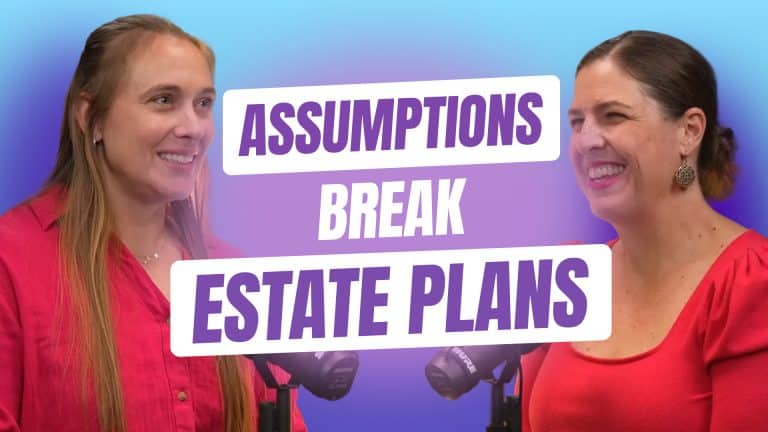Table of Contents
Snowbirds face unique estate planning challenges that year-round residents never encounter. When you split time between states—escaping cold winters for warm Nevada months—your legal documents and asset protection strategies become significantly more complex.
The stakes are high. Without proper cross-state planning, your family could face multiple probate proceedings, document validity challenges, and even predatory guardianship situations that drain your estate and create legal nightmares.
Here’s what every snowbird needs to know about protecting their assets and wishes across state lines.
The Domicile Question: Where Do You Really Live?
The first question every snowbird must answer seems simple but creates major legal implications: where do you actually live?
Domicile is the legal term for where you consider home and intend to remain indefinitely. This isn’t just about where you spend the most time—it’s about your intentions and connections.
Different agencies use different criteria to determine your domicile. The IRS looks at factors like where you vote, hold driver’s licenses, and file taxes. Courts consider where you have stronger social and economic ties.
Why this matters: Your domicile state determines which laws govern your estate, where probate proceedings occur, and what tax obligations you face.
Some snowbirds try to game the system by claiming residency in no-tax states while maintaining all their real connections elsewhere. This strategy backfires when agencies investigate and discover the true domicile through voting records, medical care locations, and family connections.
Document Validity: Will Your Trust Work in Nevada?
One of the biggest concerns snowbirds express is whether their existing estate planning documents will work in their seasonal residence state.
The short answer: probably yes, if they were properly executed.
State Reciprocity Rules
States generally honor trusts and estate planning documents created in other states, as long as those documents meet the legal requirements of the state where they were created.
Nevada’s approach: If your trust was validly executed under your home state’s laws, Nevada courts will recognize it as valid here.
The backup plan: Even if your documents don’t meet Nevada’s specific requirements, Nevada law allows attorneys to attest to the validity of documents under their original state’s laws. This provides an additional layer of protection for documents that might have technical deficiencies.
When Professional Review Becomes Critical
Even if you created your estate planning documents online or through simple software, have an attorney review them before spending significant time in another state.
Document validity challenges arise at the worst possible times—when families are dealing with medical emergencies or deaths. Spending a few hundred dollars on professional review now can save thousands in legal challenges later.
Powers of Attorney: The State-Specific Trap
Powers of attorney create the most problems for snowbirds because these documents are heavily state-specific.
Financial Power of Attorney Challenges
The problem: A Nevada bank or financial institution can legally refuse to honor your out-of-state financial power of attorney if it doesn’t meet Nevada’s specific requirements.
The common solution: Create limited powers of attorney for your seasonal residence periods. These documents specify that they only apply while you’re residing in Nevada, then revert to your original state’s documents when you return home.
Critical mistake to avoid: Don’t invalidate your original state’s power of attorney when creating Nevada documents. You need both documents active in their respective states.
Keep both sets of documents current and ensure the people named as agents understand which document applies in which situations.
Healthcare Power of Attorney Coordination
Healthcare powers of attorney, DNR orders, POLST forms, and advanced directives must all tell the same story about your wishes and who makes decisions for you.
The hospital reality: Healthcare institutions often accept whatever document you present, regardless of its state of origin. The bigger problem occurs when you have multiple documents that contradict each other.
Default rule: When healthcare documents conflict, medical providers typically follow the most recent document. This can create problems if you filled out a hospital form differently than your formal advance directive states.
Best practice: Review all healthcare documents annually to ensure consistency across states and document types.
Guardianship: Protecting Against Predatory Practices
Nevada’s history with predatory guardianship practices should concern every snowbird who moves here without local family support.
The Historical Problem
For years, Nevada law required guardians to be state residents. This created opportunities for professional guardian services to target elderly people who moved to Nevada without local family connections.
How the scam worked: Professional guardians would identify isolated elderly residents, petition the court for guardianship based on alleged incapacity, then liquidate assets and place the person in institutional care while family members in other states remained unaware.
The Netflix movie “I Care a Lot” was loosely based on actual cases that occurred in Nevada.
Legal Reforms and Current Protections
Nevada changed its laws to address these abuses:
Out-of-state guardians are now permitted as long as they designate a Nevada resident agent to accept legal service.
Preventive guardian registration allows you to file your preferred guardian choice with the Nevada Secretary of State before any need arises.
Enhanced oversight provides better monitoring of professional guardian activities.
Prevention Through Proper Planning
The best protection against unwanted guardianship is comprehensive power of attorney planning.
When you have properly executed financial and healthcare powers of attorney, guardian proceedings become unnecessary. The people you’ve chosen can already make decisions on your behalf without court involvement.
Nevada’s Trust Advantages: Why People Choose Nevada Law
Nevada has become a destination jurisdiction for trust creation, even for people who don’t live here.
What Makes Nevada Trust-Friendly
Short creditor lookback period: Only two years for fraudulent transfer claims, compared to longer periods in other states.
Strong asset protection: Nevada trusts offer robust protection against creditors and lawsuits.
Privacy protection: Nevada trust laws provide confidentiality that other states don’t match.
Recent high-profile cases have demonstrated the effectiveness of Nevada’s trust protection laws.
Requirements for Out-of-State Nevada Trusts
You don’t need to live in Nevada to create a Nevada trust, but you do need a Nevada resident trustee.
Professional trust companies provide resident trustee services for out-of-state trust creators. These companies handle the administrative requirements while you maintain control over trust decisions through the trust document structure.
Additional parameters vary depending on the specific type of trust and your asset protection goals.
The Multi-State Real Property Trap
Real property ownership creates the most expensive estate planning problems for snowbirds.
Multiple Probate Proceedings
Here’s the rule that catches many families by surprise: real property must go through probate in every state where it’s located.
If you own your primary residence in Minnesota and a vacation condo in Nevada, your family faces probate proceedings in both states when you die.
Cost multiplication: Two probate proceedings mean double the legal fees, court costs, and administrative time. The Nevada condo probate might cost more than the property is worth.
Trust Funding Prevents Multiple Probates
The solution is proper trust funding—transferring both properties into your trust during your lifetime.
When real property is owned by your trust, it doesn’t go through probate in any state. The trust document controls what happens to the property, regardless of where it’s located.
Implementation detail: Both properties must actually be titled in the trust name. Simply having a trust document without transferring property titles doesn’t provide probate avoidance.
The Time Share Nightmare
Time shares create special problems for snowbirds that most people don’t anticipate.
Contract vs. Deed-Based Ownership
Time shares come in two basic structures:
Contract-based ownership: You have contractual rights to use the property but don’t own real estate. These don’t create probate issues.
Deed-based ownership: You actually own a fractional interest in real property (like 1/52nd of a condo unit). This fractional ownership gets recorded as a deed with the local government.
Why Deed-Based Time Shares Create Problems
Real property status: Deed-based time shares are legally real property, subject to probate in the state where the deed is recorded.
Low value, high probate costs: Time shares typically have minimal resale value but require full probate proceedings to transfer ownership. Families often spend more on probate than the time share is worth.
Geographic complications: Nevada and Florida are major time share recording states. Families might face probate in their home state plus time share probate in Nevada or Florida.
Time Share Planning Solutions
Trust ownership: Transfer deed-based time shares into your trust to avoid probate.
Transfer-on-death designations: Some states allow these designations for real property, including time shares.
Family decision planning: Consider whether family members actually want the time share or would prefer to liquidate it and distribute cash instead.
Practical Implementation Strategies
Document Coordination Workflow
Step 1: Have your existing estate planning documents reviewed by attorneys in both your primary residence state and your seasonal residence state.
Step 2: Create complementary documents for your seasonal residence that don’t invalidate your primary state documents.
Step 3: Ensure all healthcare documents across both states communicate consistent wishes and decision-makers.
Step 4: Review and update both sets of documents regularly, especially after major life changes.
Trust Administration Decisions
For permanent relocations: Consider restating your trust under Nevada law if you intend to make Nevada your permanent home. This provides clarity about jurisdiction and applicable law.
For continued seasonal residence: Review your existing trust’s jurisdiction clauses. Many trusts allow trustees to choose the most favorable jurisdiction for administration.
For asset protection: Evaluate whether Nevada trust law provides advantages for your specific situation, even if you remain domiciled elsewhere.
Property Titling Checklist
Review every piece of real property you own:
- Primary residence
- Vacation homes and condos
- Time shares (determine if deed-based or contract-based)
- Undeveloped land
- Commercial property
All deed-based real property should be titled in your trust or have transfer-on-death designations to avoid multiple probate proceedings.
Professional Guidance for Complex Situations
When to Consult Multiple Attorneys
Multi-state tax implications: Some income and estate tax situations require coordination between attorneys in different states.
Business ownership: If you own businesses in multiple states, succession planning becomes more complex.
Trust administration: High-asset trusts might benefit from Nevada administration even if you remain domiciled elsewhere.
Ongoing Management Requirements
Snowbird estate planning isn’t a one-time event. Review your situation whenever:
- You change the amount of time spent in each state
- Tax laws change in either state
- Your family situation changes (marriages, divorces, births, deaths)
- Your health or financial situation changes significantly
Key Takeaways for Snowbird Estate Planning
- Document validity works across states when properly executed, but professional review ensures compliance and effectiveness.
- Create complementary powers of attorney for seasonal residence states without invalidating your original state documents.
- Coordinate all healthcare documents to ensure consistent wishes across all states and document types.
- Protect against predatory guardianship through comprehensive power of attorney planning and preventive guardian registration.
- Transfer all real property into trusts to avoid multiple probate proceedings in different states.
- Time shares require special attention to determine if they’re deed-based real property requiring probate planning.
- Nevada offers trust advantages that might benefit your estate planning even if you remain domiciled elsewhere.
FAQ: Snowbird Estate Planning
Q: How long can I spend in Nevada before I’m considered a resident for tax purposes? A: There’s no magic number of days. Residency depends on factors like where you vote, hold licenses, file taxes, and maintain stronger social/economic ties. Consult tax professionals in both states.
Q: Will my out-of-state will be valid if I die in Nevada? A: Yes, as long as it was properly executed under your home state’s laws. Nevada recognizes validly executed wills from other states.
Q: Can I have powers of attorney in multiple states without conflicts? A: Yes, with proper drafting. Limited powers of attorney can specify they only apply during residence periods in specific states, preventing conflicts with your primary state documents.
Q: What happens if I own property in three or more states? A: Without proper planning, you could face probate proceedings in every state where you own real property. Trust ownership or transfer-on-death designations can prevent multiple probates.
Q: Should I change my trust to Nevada law if I become a permanent resident? A: Consider it, especially for asset protection benefits. Nevada’s favorable trust laws might provide advantages, but review the implications with attorneys in both states.
Q: How do I know if my time share requires probate planning? A: Check your ownership documents. If you received a deed showing fractional ownership interest, it’s likely deed-based real property requiring probate planning.
Q: Can I register a preferred guardian in Nevada even if I’m not a permanent resident? A: Nevada’s guardian registration system is available for seasonal residents who want to prevent predatory guardianship situations.
Q: What’s the biggest mistake snowbirds make with estate planning? A: Failing to coordinate documents across states and not properly titling real property in trusts, leading to multiple probate proceedings and conflicting legal documents.
Q: How often should I review my multi-state estate plan? A: Annually, plus whenever you change your residence patterns, experience major life events, or when relevant laws change in either state.
Q: Is it worth creating a Nevada trust if I don’t live here full-time? A: Potentially, especially for asset protection benefits. Nevada’s favorable trust laws and short creditor lookback period can benefit non-residents, but require Nevada resident trustees.




